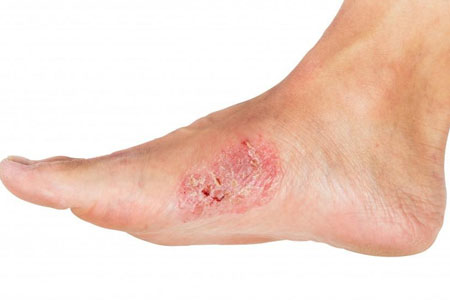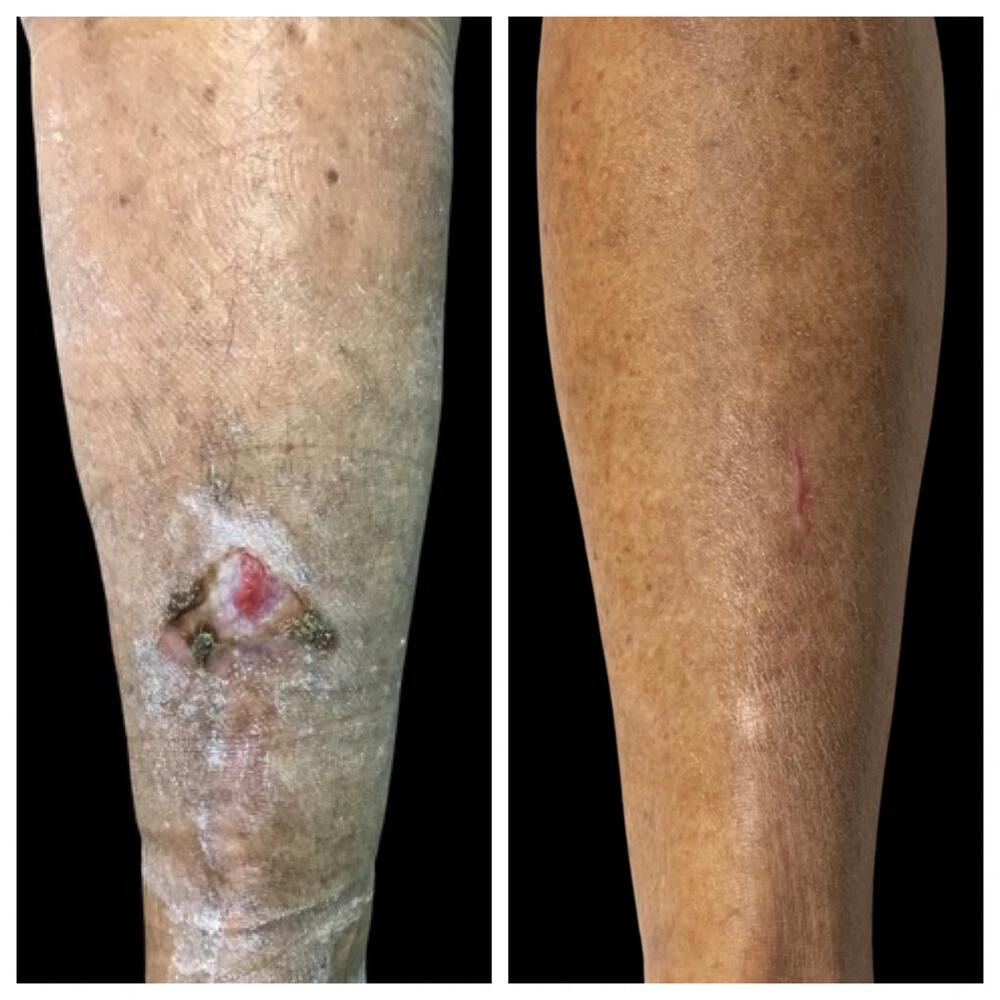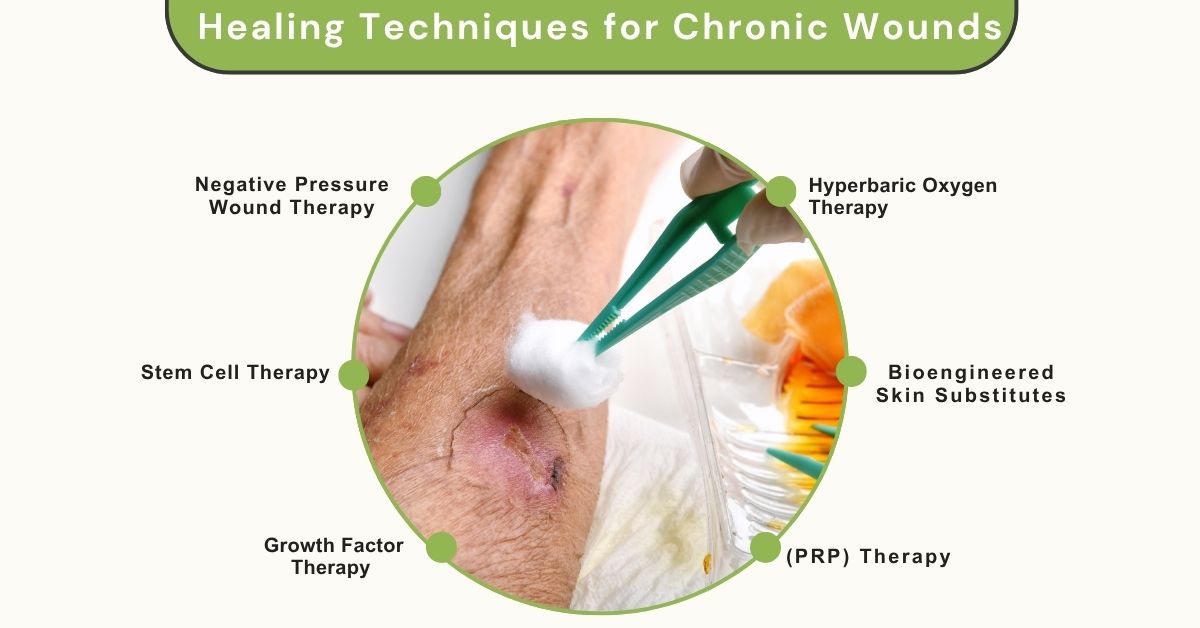Chronic Wound Care in Mumbai
Chronic Wound Care in Mumbai: Advanced Healing Techniques
Chronic wounds are a significant health
concern, particularly for individuals suffering from conditions such as diabetes,
vascular diseases, and infections. In Mumbai, where rapid urbanization and lifestyle
changes have led to an increase in these conditions, the need for advanced chronic wound
care is more critical than ever. Chronic wounds, unlike acute wounds, do not heal in the
usual time frame, often causing discomfort and complications.
In this blog, we will
explore the various advanced techniques available in Mumbai for treating chronic wounds.
From understanding the causes of chronic wounds to the latest medical innovations, we
will cover the essentials you need to know about chronic wound care.

What Are Chronic Wounds?
Chronic wounds are those that persist for longer than three
months despite treatment. These include ulcers, diabetic foot wounds, pressure sores,
and venous leg ulcers. Unlike regular cuts or abrasions, chronic wounds fail to go
through the typical healing process, often becoming a constant source of pain and
potential infection.
The primary reason for chronic wounds is poor circulation, which
limits the body's ability to deliver oxygen and nutrients to the affected area. Factors
such as diabetes, obesity, poor nutrition, smoking, and a weakened immune system can
make these wounds difficult to treat.

Advanced Healing Techniques for Chronic Wounds in Mumbai

- 1. Negative Pressure Wound Therapy (NPWT) NPWT , also known as vacuum-assisted closure (VAC), is a widely used technique for treating chronic wounds. It involves the application of a vacuum dressing to the wound, which promotes blood flow, removes exudate, and accelerates the healing process. This therapy is particularly effective for large or deep wounds and helps in reducing the risk of infection.
- 2. Hyperbaric Oxygen Therapy (HBOT) Hyperbaric oxygen therapy involves the use of a chamber filled with pure oxygen at a higher-than-normal pressure. The therapy increases the oxygen levels in the bloodstream, which aids in healing chronic wounds, especially those associated with diabetes, radiation therapy, or infections. HBOT is known to enhance the growth of new blood vessels and tissue regeneration.
- 3. Stem Cell Therapy Stem cell therapy has gained significant attention in wound care for its regenerative properties. This treatment involves the use of stem cells to regenerate damaged tissue and promote wound healing. Stem cells can be harvested from the patient's own body or from donor sources. They can then be applied directly to the wound, helping to accelerate tissue repair and reduce scarring.
- 4. Bioengineered Skin Substitutes For severe wounds that do not respond to traditional methods, bioengineered skin substitutes are an effective option. These substitutes are made from human or animal tissue and can be applied to cover large wound areas. They provide the necessary growth factors that aid in tissue regeneration, helping wounds heal faster and with less scarring.
- 5. Growth Factor Therapy Growth factors are proteins that stimulate cell growth and tissue healing. In chronic wound care, growth factor therapy involves applying synthetic growth factors directly to the wound to promote faster healing. This method is particularly beneficial for patients with diabetic ulcers or venous leg ulcers, where natural healing processes are impaired.
- 6. Platelet-Rich Plasma (PRP) Therapy Platelet-rich plasma therapy involves drawing a small amount of the patient's blood, processing it to concentrate platelets, and then reapplying the plasma to the wound. The platelets contain growth factors that speed up the healing process. PRP therapy has been particularly useful in treating chronic diabetic foot ulcers and pressure ulcers.
Dr. Vinay Jacob is a renowned Senior Plastic and Reconstructive
Surgeon in Mumbai with over 25 years of experience. He holds an MBBS from St. John's Medical
College, Bangalore, and an MS from Tata Memorial Hospital, Mumbai. Dr. Jacob specializes in a
wide range of procedures, including gender-affirming surgeries, hand and facial rejuvenation,
limb salvage , body contouring, and reconstructive surgeries for various conditions. He is
committed to providing personalized treatment plans for chronic wound care using advanced
techniques. For consultations, visit the Reconstructive Surgery Centre
For appointments , call
the clinic or visit the center directly for a consultation.
FAQs
1. What causes chronic wounds?Chronic wounds are usually caused by underlying conditions like diabetes, poor circulation, venous insufficiency, and obesity. Other factors such as infections, smoking, and poor nutrition can contribute to the persistence of these wounds.
2. How long do chronic wounds take to heal?The healing time for chronic wounds varies depending on the severity of the wound and the treatment used. With advanced therapies, some wounds can show improvement within weeks, while others may take several months to fully heal.
3. Are there risks associated with chronic wound treatments?While most treatments for chronic wounds are safe, there can be risks such as infection, allergic reactions, or side effects related to specific therapies like stem cell treatments or growth factor applications. It is essential to consult with a qualified healthcare provider before undergoing any treatment.
4. Is there a way to prevent chronic wounds from forming?Yes, preventing chronic wounds involves managing underlying health conditions such as diabetes and improving circulation. Proper foot care, regular exercise, maintaining a healthy diet, and avoiding smoking can significantly reduce the risk of developing chronic wounds.
5. How can I know if my wound is chronic?A wound that does not show signs of healing after three months, despite appropriate care, is considered chronic. If you notice persistent pain, swelling, or infection, it is crucial to consult a doctor for evaluation and treatment.
Conclusion
Chronic wound care is a complex but manageable process, especially
with the advanced treatments available in Mumbai. Whether it's using the latest stem cell
therapies or hyperbaric oxygen treatments, there are various methods that can help wounds heal
more effectively. Dr. Vinay Jacob's extensive expertise in wound care and reconstructive surgery
ensures that patients receive personalized, state-of-the-art treatment options.
If you or a
loved one is struggling with chronic wounds, seeking professional advice and utilizing the
latest medical advancements is key to achieving optimal healing. Remember, timely intervention
can prevent complications and improve the quality of life.

